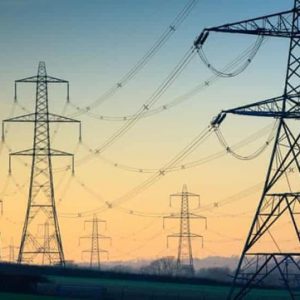This guest blog comes courtesy of Marco Hacon, the Energy Team’s new Sustainability Champion Assistant.
 On the 5th of January, a group of twenty Conservative MPs and peers published a letter in the Sunday Telegraph calling on Boris Johnson to tackle the rocketing cost of living. I don’t make a habit of reading the Sunday Telegraph. But, the article was forwarded to me by a friend and, having been charged with writing a blog entry on energy, I thought it would make the perfect subject for my first piece.
On the 5th of January, a group of twenty Conservative MPs and peers published a letter in the Sunday Telegraph calling on Boris Johnson to tackle the rocketing cost of living. I don’t make a habit of reading the Sunday Telegraph. But, the article was forwarded to me by a friend and, having been charged with writing a blog entry on energy, I thought it would make the perfect subject for my first piece.
In the letter, the writers helpfully remind us that “high energy prices… are felt most painfully by the lowest paid.” Of course, it’s hard to argue with this reasoning. But, it would be easier to think there’s no ulterior motive had this not come from the same people who refused to maintain the £20 universal credit uplift.
Indeed, the letter was organised by Craig Mackinlay, the chair of the Net Zero Scrutiny group. You’d be forgiven for thinking that they’re a group of plucky politicians intent on keeping the government in check against net-zero commitments. Unfortunately not. They claim that “we have almost uniquely caused our energy prices, through taxation and environmental levies.” The implication? That Britain’s environmental policies are to blame. These are the same policies that are currently to just hit net zero by 2050, arguably too late to stop significant damage.
So, here’s my take on what has really caused the increase in energy prices and what can be done to prevent further increases. First, the increase is a result of a combination of factors. Primarily, the combination of rapid global economic growth after the COVID recession, an incredibly cold and lengthy winter (in the Northern Hemisphere), and lower than necessary supply.
This lower than necessary supply is the result of decreased global investment in oil and natural gas infrastructure after their price dropped in 2014 and 2020 and delays to essential maintenance because of global lockdowns. This is felt more acutely in the UK, which only has the lowest gas storage in Europe capacity to hold 2% of its annual usage in storage (compared with France and Germany at 25%) after closing sites such as Rough storage. This has left it at the mercy of global wholesale energy markets. These aren’t currently in the UK’s favour with LNG demands from Asia having jumped to avoid blackouts and to keep industries operational, particularly after events like Fukushima. Add weak investment in low carbon energy technology and sources, such as renewables, biofuels, energy efficiency and electricity grids, and you can see why supply hasn’t been able to match soaring demand.
It is worth mentioning that geopolitics is also at play. Although they don’t directly supply the UK, exports from Russia’s state-owned Gazprom, which usually provides one-third of Europe’s gas, are at a six-year low. While the company claims this is because of low storage levels and increased domestic demand, it is quite a coincidence that this comes at the same time as heightened tensions with Europe over the Nord Stream 2 pipeline.
The upshot doesn’t look pretty. In Britain, after an initial price cap rise (the maximum price suppliers can charge customers on a standard tariff), about 15 million households saw their energy bills rise by 12% in October. This trend is set to continue with predictions of a further 50% increase after a cap review in April. To cover the costs of failed energy suppliers, the average energy bill could go to almost £2,000 a year, up from £1,138 in 2021. Of course, businesses are also impacted, especially for industries that rely heavily on gas and oil.
To solve this problem, it would be misjudged to cut environmental levies and remove energy taxes. In fact, the opposite is required, greater investment and emphasis on clean energy would reduce reliance on other sources and increase overall resilience to shocks. In the short term, the most vulnerable people and businesses require financial support. After all, is it their fault that a free and competitive energy market has failed them?
 Marco Hacon is currently studying for a Master’s degree in Environment, Politics and Development here at King’s. Before this, he worked in a few start-ups and scale-up companies with social purposes, where he gained a basic understanding of sustainability. He is a strong believer in a just and equitable clean energy transition. He is excited to write about this as well as more King’s-related energy topics for the team’s blog. He also wants to help develop toolbox talks for King’s staff and teams that centre on how to use energy sustainably.
Marco Hacon is currently studying for a Master’s degree in Environment, Politics and Development here at King’s. Before this, he worked in a few start-ups and scale-up companies with social purposes, where he gained a basic understanding of sustainability. He is a strong believer in a just and equitable clean energy transition. He is excited to write about this as well as more King’s-related energy topics for the team’s blog. He also wants to help develop toolbox talks for King’s staff and teams that centre on how to use energy sustainably.

